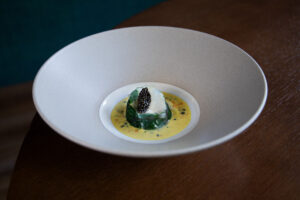
Brački Vitalac
The preparation of the traditional dish Brački vitalac is one of the most important traditions of the island of Brač. This dish made from lamb
The Mediterranean Diet, as a multi-dimensional cultural element, needs different approaches in order to be investigated as an autonomous research field. From the research activity carried out in the Sixties by an American scientist, Ancel Keys, professor of the University of Minnesota, and his Seven Countries Study, the overall concept of Mediterranean Diet was born.
The study of the link between the incidence of cardiovascular diseases and the eating habits of the local populations represented the basis of the successful comparative studies of the American biologist and physiologist, comparing the medical data and dietary regimens of 14 groups of men between 40 and 59 years belonging to seven countries of three different continents (United States, Finland, Holland, Italy, Yugoslavia, Greece and Japan). The Seven Countries Study, for its international multicentric structure, has become the prototype of epidemiological studies on cardiovascular diseases at the international level.
Since the publication of the Seven Countries Study of Keys it has been a flourish of studies and research paths that in recent years have focused in order to bring out the different characters of the Mediterranean Diet and to analyze this unique lifestyle that still characterizes the life of millions of people along the shores of the Mediterranean basin.
Today the research activity on the concept of Mediterranean Diet has assumed transversal perspectives: from the field of medicine and biology, to social sciences and anthropology, to marketing and law. Each facet of the concept needs a specific discipline for its understanding and a holistic approach to be photographed in the best possible way.
Research centers which, in the context of the Mediterranean UNESCO World Heritage Diet, deal with analyzing and safeguarding this cultural element, a common heritage of the Mediterranean populations, are diverse and each uses different approaches. Many of these have also started specific university courses for the protection and enhancement of the Mediterranean Diet.

The preparation of the traditional dish Brački vitalac is one of the most important traditions of the island of Brač. This dish made from lamb

Turbot fish and spices Our working philosophy is that we use local produce and exploit the product as a whole, without waste. In this way,

with four leaves sauce Ingredients for 2 people Ingredients (for 2 people) For the bread: 300 g rustic bread, stale 4 ut garlic cloves q/s

The Mediterranean Diet is a lifestyle marked by diversity combined with a set of food and social characteristics that make it a cultural, historical and
| Cookie | Duration | Description |
|---|---|---|
| cookielawinfo-checkbox-analytics | 11 months | This cookie is set by GDPR Cookie Consent plugin. The cookie is used to store the user consent for the cookies in the category "Analytics". |
| cookielawinfo-checkbox-functional | 11 months | The cookie is set by GDPR cookie consent to record the user consent for the cookies in the category "Functional". |
| cookielawinfo-checkbox-necessary | 11 months | This cookie is set by GDPR Cookie Consent plugin. The cookies is used to store the user consent for the cookies in the category "Necessary". |
| cookielawinfo-checkbox-others | 11 months | This cookie is set by GDPR Cookie Consent plugin. The cookie is used to store the user consent for the cookies in the category "Other. |
| cookielawinfo-checkbox-performance | 11 months | This cookie is set by GDPR Cookie Consent plugin. The cookie is used to store the user consent for the cookies in the category "Performance". |
| viewed_cookie_policy | 11 months | The cookie is set by the GDPR Cookie Consent plugin and is used to store whether or not user has consented to the use of cookies. It does not store any personal data. |